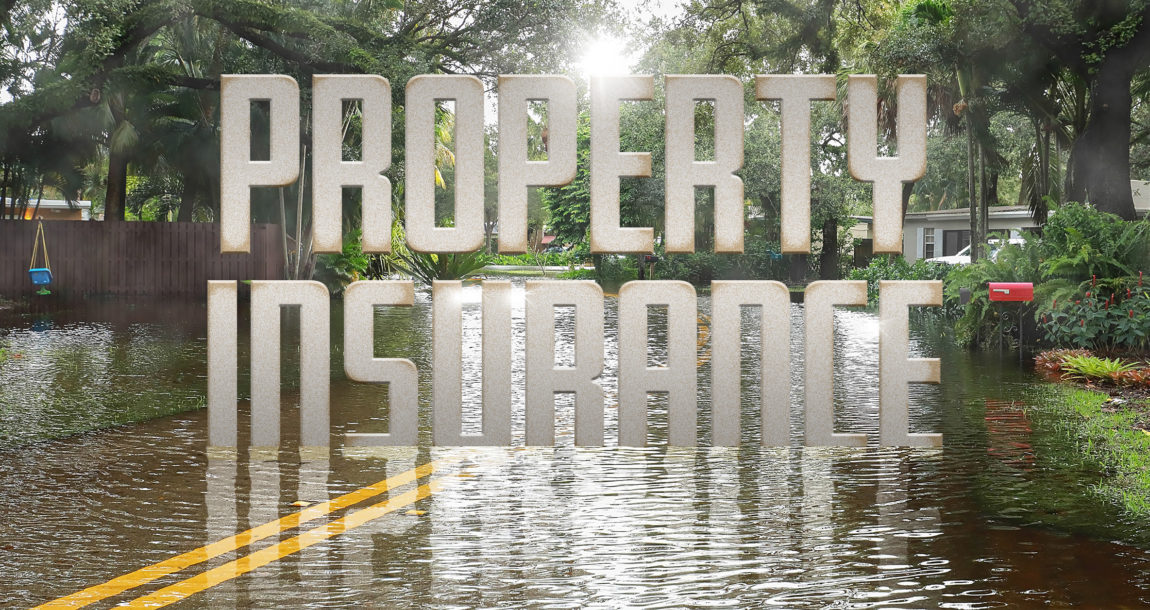Opinion: Florida needs plan to address state’s property insurance crisis

Last month, the Demotech Inc., an Ohio-based financial ratings firm, announced it would downgrade 17 private insurers operating in Florida. The move prompted a sharp response from state leaders, including counterproductive complaints to federal home mortgage agencies about Florida's lone property insurance ratings agency.
In his letter to Fannie Mae, Freddie Mac, and the Federal Housing Finance Agency, Florida Chief Financial Officer Jimmy Patronis, called Demotech, Inc. "a rouge ratings agency," playing "havoc with the financial lives of millions of Floridians." This, from a guy who seems more interested knocking President Biden and the IRS than finding a solution to a crisis that threatens the state's housing market and the larger economy.
The carping against Demotech may have bought the state time. The ratings agency postponed its initially planned downgrades but whining by the state's CFO is no real substitute for a comprehensive policy to keep property insurance viable and affordable.
In 2019, Floridians paid $1,988, the average homeowners insurance premium. Today, it's $4,231, according to an Insurance Information Institute analysis. Property and casualty companies still offering homeowners insurance continue to face the threat of liquidation. As a result, Citizens Property Insurance Corp., the state government-backed insurer of "last resort," is fast becoming the only viable option.
"When the market is healthy, Citizens gets smaller as private companies take advantage of good market conditions," Michael Peltier, a Citizens' spokesman told Post reporter Hannah Morse. "When the market is in challenging times, we grow."
As the state faces the high point of another hurricane season, the stakes couldn't get much higher. Homeowners relying on federally-backed mortgages need high-rated insurers to meet Fannie Mae and Freddie Mac insurance requirements. Lower ratings typically force policyholders to pay more for new coverage, particularly for homeowners whose homes are paid through federally-backed mortgages.
Granted, Gov. DeSantis did call a special session of the Florida Legislature to address the crisis. The result was more money set aside for re-insurance to help struggling insurers, a move that was bolstered this month when the Florida Office of Insurance Regulation announced plans to set up a temporary reinsurance arrangement through Citizens Property Insurance Corp., to fortify insurers during the current storm season.
The arrangement meets an "exception" that allows struggling insurers to obtain reinsurance, money that would allow them to provide coverage and meet the requirements on federally-backed mortgages. Unfortunately, the exceptions won't help much if Demotech is forced to make more downgrades or leaves Florida altogether.
Worse, the state's efforts to address the crisis haven't mollified the insurance industry, which still views climate change and ongoing litigation as factors that make Florida a risky place to do business. The special session that produced bills that favored the insurance industry over consumers was met with a collective "meh" by the industry.
It's not like the state hasn't seen this coming. The big insurance firms that offer bundled home and auto insurance policies in other states abandoned Florida years ago, leaving homeowners here with smaller firms that may be willing to take the risk but need more help in obtaining reinsurance from the state of Florida to do so.
"I truly think the only way to address property insurance is with national catastrophe insurance similar to what the federal government did with flood," State Sen. Lori Berman, D-Delray Beach told the Post Editorial Board. "I hope the reinsurance Band-Aid works but I'm not convinced."
Whether the solution is market-driven or government-run remains to be seen. But so far the only plan seems to be to hope we don't get a hurricane.
If state leaders, like Patronis, are serious about addressing property insurance, they'd better take a more pro-active approach with the industry and appropriate federal agencies. It's clear that simply reacting to events isn't working. Whining about the last standing rating agency won't help, either.





Insurance Fraud Identification Market Growth, Size, Share, Global Industry Analysis, Trends, Key Competitors and Forecast to 2028 ACI Worldwide, CaseWare, Experian, FICO, Fiserv, FRISS, IBM, Kount, LexisNexis: Insurance Fraud Identification Market to hit by 2028 – Global Insights on Trends, Value Chain Analysis, Regulatory Framework, Leading Players, Drivers, and Future Prospect
Accident and Illness Pet Insurance Market May See a Big Move: Major Giants PICC, Hartville Group, Embrace
Advisor News
- CFP Board appoints K. Dane Snowden as CEO
- TIAA unveils ‘policy roadmap’ to boost retirement readiness
- 2026 may bring higher volatility, slower GDP growth, experts say
- Why affluent clients underuse advisor services and how to close the gap
- America’s ‘confidence recession’ in retirement
More Advisor NewsAnnuity News
- Insurer Offers First Fixed Indexed Annuity with Bitcoin
- Assured Guaranty Enters Annuity Reinsurance Market
- Ameritas: FINRA settlement precludes new lawsuit over annuity sales
- Guaranty Income Life Marks 100th Anniversary
- Delaware Life Insurance Company Launches Industry’s First Fixed Indexed Annuity with Bitcoin Exposure
More Annuity NewsHealth/Employee Benefits News
- Far fewer people buy Obamacare coverage as insurance premiums spike
- Dems criticize Senate challengers for end of subsidies
- Democrats criticize U.S. Senate challengers for end of health insurance subsidies
- HOW HEALTH-INSURANCE CONSOLIDATION HURTS PATIENTS, PHYSICIANS
- Why health care costs hit harder in Alaska
More Health/Employee Benefits NewsLife Insurance News